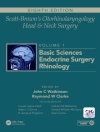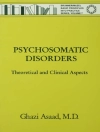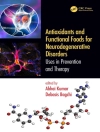This book provides an in-depth and up-to-date review of the association between blood pressure disorders and diabetes mellitus. In addition, it discusses the specific role of hemodynamic alterations on the vasculature of various target organs (the retina, kidney, brain, and gravid uterus), topics that are infrequently considered and or acknowledged by clinicians.
Covering all aspects of the interaction between metabolic and hemodynamic factors, the book presents
the diverse perspectives of the contributing authors and extensive discussions of issues including diabetic kidney disease, diabetic hypertensive phenotypes and postural hypotension.
Tabella dei contenuti
I Introduction.- 1 Coexistence of Diabetes Mellitus and Hypertension.- II Epidemiological Aspects.- 2 BP disorders in diabetic children/adolescents.- 3 Hypertension and Type 2 Diabetes Mellitus.- 4 BP Disorders in Gestational Diabetes (Hypertension / Preeclampsia).- III Screening and Diagnostic Approaches in Diabetic Hypertensive Patients.- 5 Office / Out-of-Office Blood Pressure Measurements.- 6 Laboratory Indices / Bioimaging.- IV Pathophysiological Mechanisms.- 7 Genetics.- 8 Insulin and BP relationships.- 9 Mechanisms of Diabetic Nephropathy in Experimental Animals.- 10 Molecular Alterations in Diabetic Chronic Kidney Disease.- V Target Organ Damage in Diabetic Hypertensive Patient.- 11 Endothelial Dysfunction / Arterial Stiffness.- 12 Heart in Diabetic Hypertensive Patients.- 13 Cerebrovascular Structural Alterations.- 14 Diabetic Nephropathy in Type 1 Diabetes Mellitus.- 15 Diabetic Chronic Kidney Disease in Type 2 Diabetes Mellitus (Albuminuric/ Nonalbuminuric).- 16 Diabetic Retinopathy.- VI Strategies for Blood Pressure Control.- 17 Target Blood Pressure Values / Choice of Antihypertensive Drug Classes.- VII Benefits of Antihypertensive Treatment.- 18 Lifestyle modification.- 19 Blood Pressure Thresholds for Initiation of Drug Treatment / and Effect of Blood Pressure Reduction on Target Organs.- VIII Antihypertensive Drugs and Diabetes Mellitus: Special Problems.- 20 Adverse reactions associated with RAAS Blockers.- 21 Insulin Resistance and New Onset Diabetes Mellitus.- 22 Management of Hypertensive Diabetic Patient during Ramadan Fasting.- IX Other Therapeutic Modalities.- 23 Control of Blood Glucose and Cardiovascular Risk Profile.- X Hypotensive Disorders.- 24 Supine / Postural Hypotensive Blood Pressure Levels.
Circa l’autore
Adel E. Berbari is Emeritus Professor in Faculty of Medicine at the American University of Beirut. He was Professor of Internal Medicine/Physiology at the American University of Beirut Medical Center, Beirut, Lebanon. He graduated in 1959, had his residency training in Medicine at the American University of Beirut Medical Center from 1959 to 1963, and then was Research Fellow at the Peter Bent Brigham Hospital (Hypertension Unit), Boston, USA, from 1963 to 1966. He acted as Research Associate at Peter Bent Brigham Hospital in 1966. He also acted at the American University of Beirut Medical Center as Chairperson of Department of Physiology (1968) and Internal Medicine (1999-2000), and as Head of the division of Nephrology-Hypertension (1977-2001). He was President of the Lebanese Society of Nephrology and Hypertension, Secretary General of the Lebanese Association for the Advancement of Science, Board member of the Lebanese National Council for Scientific Research, and director of the Board of World Hypertension League. He is President of the Lebanese Hypertension League and Director of the Excellence Center of Nephrology-Hypertension division at AUBMC. He is Board Certified by the European Society of Hypertension as Clinical Hypertension Specialist. His main research interests focus on Hypertension, vascular medicine, and nephrology.
Giuseppe Mancia is a Professor Emeritus at the University of Milano-Bicocca and served as Professor of Medicine and Head of the First Division of Medicine at San Gerardo Hospital, Monza, Italy. One of the most cited Italian scientists, he is an executive officer of the European Society of Hypertension and Chair of the ESH Educational Committee. Prof. Mancia has served as President of the European Society of Clinical Investigation, of the Italian Society of Hypertension and of the European Society of Hypertension, the International Society of Hypertension, and is a member ‘ex officio’ of the Executive Scientific Council of the American Society of Hypertension, among others. Dr. Mancia’s research interests include pathophysiology, diagnosis and therapy of hypertension, heart failure, coronary and other cardiovascular diseases. His expertise includes ambulatory blood pressure monitoring, neural control of circulation, large artery mechanics, and clinical trials.












